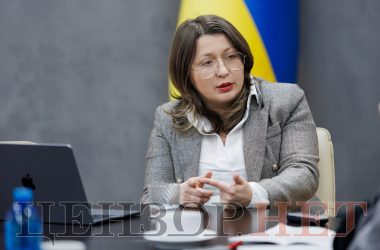In Ukraine, 30% of veterans cannot find a job now, despite the fact that the labor market needs workers. This is evidenced by the data of the study of the Ukrainian Veterans Fund “Retraining and employment of veterans. Challenges and opportunities”, reports Rayon.Zhyttya.
The Fund’s specialists analyzed the current legislation on ensuring the labor rights of veterans, and also developed a set of recommendations for improving regulations. They also researched and presented the best international practices regarding the successful implementation of norms regulating the labor rights of veterans.
“The Ukrainian Veterans Fund specializes in in-depth research of the portrait of a veteran and the problems and challenges they face in the process of reintegration. As for the social protection of veterans, especially in terms of their labor rights and guarantees, the legislation does not always meet current needs and needs improvement. Therefore, we developed the best global practices that can be adapted and used in Ukraine. State resources are currently very limited, so we cannot implement ineffective programs,” says Yuliya Kirillova, first deputy executive director of the Ukrainian Veterans’ Fund.
According to the results of the research, the legislative provision of labor rights of veterans is not unified and scattered in more than ten normative legal acts. This complicates access to information, and as a result, to the benefits and guarantees guaranteed by the state to veterans.
The authors of the study recommend creating a comprehensive support system that will include professional retraining, education financing, active cooperation with employers, mentoring programs and consideration of gender aspects.
“The Ministry of Veterans has developed a project on Veterans’ Development Centers, which were opened in different regions of Ukraine. There are currently 15 of them. Returning home, veterans can gain knowledge and education in various areas,” says Alyona Skorzova, Acting Director. head of the department of veteran development of the Department of ensuring the transition from military service to civilian life of the Ministry of Veterans Affairs.
The research discussion also drew attention to the importance of inclusive approaches in the workplace.
“If we want to fully employ veterans, there is simply no other way than barrier-free and inclusion. Many people with combat experience, with disabilities, could work if the working conditions suited them, but cannot realize themselves in the labor market,” says Olga Galchenko, manager of the “Civil Sustainability” program of the “Renaissance” International Foundation.
Taras Tarasenko, People’s Deputy, member of the VRU committee on social policy and protection of veterans’ rights, shared about the developed legislative initiatives, which are designed to improve the situation with the protection of veterans’ rights.
He noted that there is draft law 5344, which provides for changing the conditions for employers to employ people with disabilities. Another draft law that is in the committee is about veteran entrepreneurship.
“We expect that it will be included in the hall. Another draft law, recently registered, was developed as a reaction to the violation of the labor rights of veterans and provides for the period of service to be automatically extended for the duration of the employment contract. After all, if there is such a contract, it is a guarantee of employment. At the level of the Ministry of Veterans Affairs, there should be a support program that will advise businesses on how to work with veterans,” says Taras Tarasenko.
In addition, the People’s Deputy drew attention to the need to create convenient electronic services based on the US model and to involve all resources for this, both Miniveterans and the State Employment Service.
Anatoly Ostapenko, People’s Deputy of Ukraine, emphasized that the Ukrainian experience of implementing the veteran policy is special, considering the number of veterans we have now and will have in the future.








